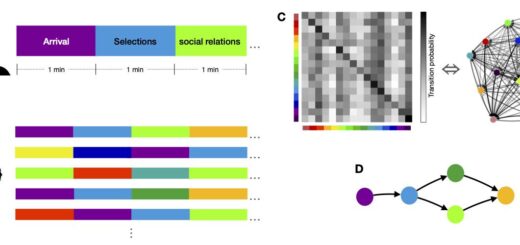Tuesday 7 October 2014 – Jo Guldi – Introducing Paper Machines
The IHR Seminar in Digital History is back for another year. We will be announcing our full programme for 2014-15 soon and details about the live stream, but in the meantime we would like to welcome you to our first session of our new programme. Please keep the date free!
Watch the Live Stream here:
If you would like to take part in the online chat click through to watch the video on YouTube.
Date: 7 October 2014
Time: 5:15 PM (BST=GMT+1)
Venue: Room 208, Senate House
Speaker: Jo Guldi (Brown University)
Abstract: Historians of the twentieth century have to contend with a technological problem, the issue of archives too large to process by traditional methods. While textual encoding, tagging, and n-grams can reveal certain patterns in digital archives, topic modeling and topic frequency, applied to hand-tailored archives, can help the historian make informed decisions about where in an archive to start looking. Digital methods, in this way, are driving historians to longer and longer time scales, making it possible for even younger scholars to perform a ‘distant reading’ on big questions that range over nations and centuries. The talk will follow parts of the argument of The History Manifesto (2014), comparing how a historian’s search for periodization, agency, and causality in the data compare with use and abuse of digital data in other digital fields.
Speaker Biography: Jo Guldi is author of Roads to Power (2012), What is the Spatial Turn? (2012), The History Manifesto(2014), and the digital toolkit Paper Machines (2012). She is Hans Rothfels Assistant Professor of Modern Britain and its Empire at Brown University. Her next project, The Long Land War, examines a century and a half of movements for land and water around the globe.
